News
20242023202220212020
Resident Interviews 12-18-23
Tuesday, December 12, 2023
The Department of Neurology would like to welcome residency applicants, interviewing on Monday, December 18th
Adult Neurology Applicants
Adedayo Adegbile – Khalifa University College of Medicine & Health Sciences
Brittany Calkins – University of Missouri-Columbia School of Medicine
Kurtis Chien-Young – Boston University School of Medicine
Zoya Gurm – Wayne State University School of Medicine
Mohamad Hamze – University of Vermont
Caitlyn Kelly – Louisiana State University School of Medicine in New Orleans
Justin Kosman – Geisinger Commonwealth School of Medicine
Rachel Simon – Geisinger Commonwealth School of Medicine
From lab to life-changer: URMC neuromuscular researchers pave the way for gene therapy revolution
Monday, October 30, 2023
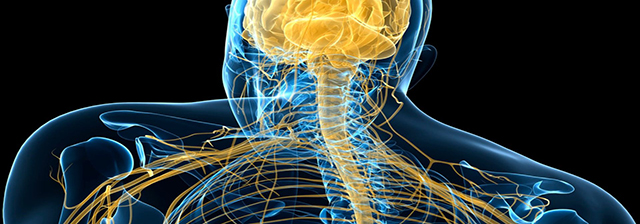 Myotonic dystrophy type 2 (DM2), a rare form of muscular dystrophy, can trace its origins to a meeting three decades ago in the Garvey Room on the fifth floor of Strong Memorial Hospital. Present at the regular gathering of neuromuscular researchers were Robert (Berch) Griggs, MD, and Richard Moxley, MD, two of the founding fathers of the University of Rochester Medical Center (URMC) Department of Neurology, and Charles Thornton, MD.
Myotonic dystrophy type 2 (DM2), a rare form of muscular dystrophy, can trace its origins to a meeting three decades ago in the Garvey Room on the fifth floor of Strong Memorial Hospital. Present at the regular gathering of neuromuscular researchers were Robert (Berch) Griggs, MD, and Richard Moxley, MD, two of the founding fathers of the University of Rochester Medical Center (URMC) Department of Neurology, and Charles Thornton, MD.
As was a common practice, a patient with a puzzling case joined the group that day. This individual demonstrated the well-established clinical symptoms of myotonic dystrophy but did not possess the genetic flaw associated with the disease. The question put to those in the room was whether this case–one of a growing number identified via a new genetic test—was a completely new disease, a flaw with the test, or something else. “There was a vigorous debate and a wager that involved a six-pack of beer,” said Griggs. “But no one can recall who was on the winning side of the argument and whether beer ever changed hands.”
In 1994, Griggs, Moxley, and Thornton published descriptions of three of these cases in the Annals of Neurology, thereby becoming the first to describe DM2. It was proposed at the time that the new disease be named for the trio, but they declined in recognition of other scientific teams around the globe that were arriving at the same conclusions, and the disease eventually came to be known as DM2.
Read More: From lab to life-changer: URMC neuromuscular researchers pave the way for gene therapy revolutionFDA approves Duchenne Muscular Dystrophy treatment following clinical trial at URMC
Thursday, June 22, 2023
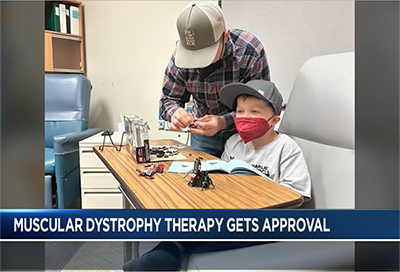
On Thursday, the FDA approved the first gene therapy for Duchenne Muscular Dystrophy (DMD) and it did it based in part on research that was conducted right here in Rochester.
A number of young boys with DMD participated in phase three of the clinical trial at URMC for a therapy called Elevidys.
Elevidys was grated accelerated approval for pediatric patients aged four and five with DMD. One of the families who participated in the trial says since their son’s infusion in January they’ve seen remarkable progress.
Charlie Prior was diagnosed with DMD at age three. DMD almost exclusively impacts boys and in the past, most have lost the ability to walk by the time they become teenagers.
That’s why Charlie’s parents were eager to join the Elevidys trial. Dr. Emma Ciafaloni has been leading it at URMC.
“This has been in the making for a very long time,” she previously explained to News10NBC. “And so that’s the exciting part of this is really trying to replace the broken gene and make the proteins that are missing — unlike other treatments that we have that are more like may be symptomatic treatments.”
Charlie had an infusion in January that his mom believes was the treatment.
“About eight weeks later, he was able to fully dress himself independently, put on his own shoes, I saw him hop on a swing and just start swinging, jumping and even now he’s able to jump in a pool — which is awesome. Oh, and he is snapping his fingers,” Cheryl Prior tells News10NBC.
Read More: FDA approves Duchenne Muscular Dystrophy treatment following clinical trial at URMCPalliative Care: Creating a New Model to Address Suffering for Neurological Illnesses
Wednesday, June 21, 2023
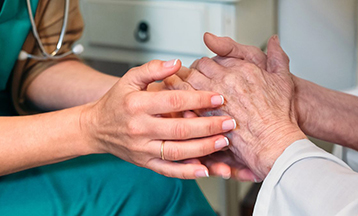
Neurologic illnesses, including Alzheimer’s, brain cancer, amyotrophic lateral sclerosis (ALS) and stroke, are among the most dreaded illnesses in medicine and leading causes of disability and death worldwide. Despite the huge burden of suffering these patients and families face, palliative care is not routinely offered and is used far less than in other illnesses.
In a review commissioned by the journal Lancet Neurology, an international team of experts argue that current models of care do not adequately address the needs of people living with neurologic illness. They propose a new evidence-based framework for early and ongoing palliative care approaches employed by multiple members of the health care team to improve quality of life for individuals with neurological disorders and their families.
“Suffering is the fundamental concern of palliative care. To improve care we must address the total pain of neurologic illness -- not just physical pain, but also psychological, social, and spiritual distress,” said University of Rochester Medical Center neurologist Benzi Kluger, MD, lead author of the article produced by members of the International Neuropalliative Care Society. “This model of care seeks to screen for and prevent suffering by integrating an early approach to palliative care, with neurologists, and other clinicians who care for people with neurological illnesses incorporating a palliative care approach from day one.”
Nearly all neurological diseases cause a wide range of symptoms, including pain, fatigue, and memory loss. Depression, anxiety, social isolation, and loss of independence are also common. Family members typically are the primary at-home caregivers and over time can struggle with the emotional impact of seeing a loved one suffer as well as with the social, financial and physical impact of providing care.
Read More: Palliative Care: Creating a New Model to Address Suffering for Neurological Illnesses Leading by Example: How the University of Rochester’s Neuropalliative Care Service Expands Treatment Possibilities
Friday, June 2, 2023
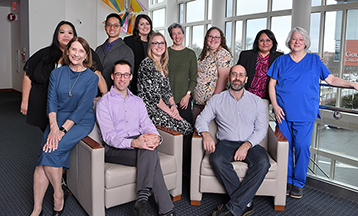 With few neuropalliative care services available in the US, the University of Rochester stands as a prime example of how a successful program can transform patient care. Palliative care is a specialty of medicine that aims to improve quality of life for individuals with serious or advanced medical conditions by assessing and managing symptoms, establishing goals of care, providing support to caregivers, and engaging in advance care planning discussions.1 Since the turn of the century, neuropalliative care has become an emerging subspecialty that serves as a unique piece of the wider care paradigm, to the point that formal organizations, fellowship programs, and care centers have been established, and a greater number of clinicians have begun to implement aspects of this model in their own care regimens.
With few neuropalliative care services available in the US, the University of Rochester stands as a prime example of how a successful program can transform patient care. Palliative care is a specialty of medicine that aims to improve quality of life for individuals with serious or advanced medical conditions by assessing and managing symptoms, establishing goals of care, providing support to caregivers, and engaging in advance care planning discussions.1 Since the turn of the century, neuropalliative care has become an emerging subspecialty that serves as a unique piece of the wider care paradigm, to the point that formal organizations, fellowship programs, and care centers have been established, and a greater number of clinicians have begun to implement aspects of this model in their own care regimens.
Headed by Benzi Kluger, MD, MS, the Neurology Supportive and Palliative Care Service at the University of Rochester stands as one of those few established neuropalliative care programs in the United States. Kluger, who also serves as a professor in the Department of Neurology and Department of Medicine, was recruited to the facility in 2020 from the University of Colorado to build upon previous work in developing models of neuropalliative care for Parkinson disease (PD) and other neurodegenerative illnesses.
"The key is to have at least 1 person who’s a strong champion for the cause," Kluger told NeurologyLive®. "If there’s that person and they’re willing to be creative and persistent, then I think success is inevitable. In my work at Colorado and Rochester, as well as lessons I learned from Janis Miyasaki, MD, MED, FRCPC, FAAN—who started one of the first clinics in Canada—having a team with complimentary skill sets is important."
Miyasaki, an esteemed leader in neurology, initiated the first neurologist-led palliative care clinic at the University of Toronto in 2007.2 Since then, she has spread her wisdom to several other neurologists and movement disorder specialists interested in starting their own clinics, and has established herself as one of the leading voices in the realm of neuropalliative care.
At the University of Rochester, one of the core aspects of the neuropalliative care service is treating the total pain of illness—meaning not just the physical and mental symptoms, but also the psychological, social, and spiritual aspects of what a patient and their family are going through. The faculty is comprised of several different subspecialties, including those who work as administrators, community and patient advocates, and registered nurses. In addition, there are numerous physicians and advanced practice providers on-staff who have backgrounds in palliative care as well as in neuromuscular disorders, movement disorders, stroke, memory care, general neurology, child neurology, and neuro-oncology.3
There are several social work and spiritual/family support staff members in the program, including chaplains and mental health therapists, such as Sue Ouellette, PhD. Ouellette, who’s been with the program for several years a chaplain, is also a licensed marriage and family therapist, with a special interest in working with individuals with disabilities and their families. She is fluent in American Sign Language (ASL) and conducts sessions in ASL when appropriate.
Read More: Leading by Example: How the University of Rochester’s Neuropalliative Care Service Expands Treatment PossibilitiesTelemedicine Extends Reach of Stroke and Neurological Care
Wednesday, April 19, 2023
UR Medicine neurologists are now providing remote acute and inpatient neurological care for 16 hospitals across upstate New York, creating one of the more comprehensive hub-and-spoke networks in the nation.
“We are able to provide acute neurologic consultations for any patient who presents to any UR Medicine hospital, as well as some of our important partner institutions,” said Adam Kelly, MD, director of Teleneurology and Regional Development for the Department of Neurology. “While some neurology programs provide remote consultations for patients in emergency departments, our team continues to follow patients longitudinally while they remain in the hospital. This is a major accomplishment that would not be possible without the hard work and dedication of a team of staff and providers, both at Strong Memorial and our affiliate hospitals, who are committed to the concept of delivering virtual care in our region.”
24/7 Telestroke Care
UR Medicine telestroke program has existed for several years but grew substantially in 2018-2019 from a partnership to provide telestroke care to the Bassett Healthcare Network. Curtis Benesch, MD, the medical director of the UR Medicine Comprehensive Stroke Center, led this initial effort prior to handing off directorship to Kelly in 2019. The program consists of a dedicated team of stroke specialists who are available 24/7 to interact with patients and families and consult with medical providers via phone or video.
Read More: Telemedicine Extends Reach of Stroke and Neurological CareAppointment of Dr. Blanca Valdovinos as Associate Chair of Diversity, Equity, Inclusion, and Justice
Friday, April 7, 2023
Dr. Blanca Valdovinos has been appointed as the Associate Chair of Diversity, Equity, Inclusion, and Justice (DEIJ) in the Department of Neurology. Dr. Valdovinos is an Assistant Professor of Neurology who completed her undergraduate degree at Cornell and then completed her Medical Degree and Neurology Residency at the University of Rochester. She furthered her training in Rochester by completing a Movement Disorders fellowship and joined as faculty in 2020.
Dr. Valdovinos has had an early, impressive impact. She has completed the American Academy of Neurology (AAN) Diversity Leadership Program and is the Co-Director of the Parkinson’s Foundation Center of Excellence. In 2020, she established the Spanish Language Neurology Clinic, which has seen over 250 new Spanish speaking patients during its first two years. She is active in the Hispanic community in Rochester and has worked closely with Ibero, an agency that advocates for Hispanics and the underserved. She has given talks in Spanish on neurologic disorders at Ibero’s Centro De Oro (Spanish language day program) and is a member of its Community Advisory Board whose goal is to educate community members on how research is conducted while developing trust. Recently, Dr. Valdovinos was appointed as a member of the Editorial Board of Brain & Life en Español, the patient and care partner-oriented magazine published by the AAN.
She is a UR Medicine Geriatrics Faculty Scholar and has presented her work for local and national audiences. She is a frequent contributor to PBS and local radio shows and participates on national committees to guide research with a focus on Hispanic patients and caregivers with memory disorders. She was the education program director and speaker for the course Parkinson’s Disease: Assessment and Management at the AAN annual meeting in 2022. Her passion and strong track record of mentoring will enable her to build partnerships and excel in this role.
Dr. Valdovinos will Co-Chair the Department’s Inclusion, Diversity, Equity, Antiracism, and Social Justice (IDEAS) Council with focused attention on 1) Enhancing Climate: transparency, education and awareness initiatives, 2) Learner and Workforce Development, and 3) Advocacy, Outreach and Community Initiatives. Dr. Nimish Mohile has served in this capacity for the past six years, literally defining the role of Diversity Officers within the Department of Neurology, while also leading national DEIJ efforts within our American Academy of Neurology. Nimish, along with Chennel Andersen, have been instrumental in leading our DEIJ efforts, most notably during the early phases of the pandemic where they prioritized and launched our Department’s Equity and Anti-Racism Action plan. Nimish will continue in his role as Associate Chair for Career Development and Leadership, spearheading innovative programs for faculty, trainees, and members of our clinical and academic teams. I am grateful for his past and continuing partnership.
Dr. Valdovinos will advance the Department’s vision and mission and provide leadership across all axes of inequity, across all missions, and across all intersectional measures of diversity. She will advance the evolution and implementation of the Department’s Equity and Anti-racism initiatives, and ensure goal alignment with the five pillars of the URMC’s Equity and Anti-Racism Action Plan: Build, Recruit, Nurture, Exemplify, Engage.
While we have made some progress in advancing equity and inclusion, we still have a long way to go. We have a committed group of DEIJ champions across our department who participate in multiple initiatives within our IDEAS council. Dr. Valdovinos has the ambition, curiosity, and courage to help us chart a continued, focused course of advocacy and change in the years ahead.
Dr. Emma Ciafaloni has been appointed as Associate Chair of Research in Neurology
Friday, April 7, 2023
Dr. Emma Ciafaloni has been appointed as the Associate Chair of Research in the Department of Neurology. Dr. Ciafaloni is the Robert C. and Roslayne H. Griggs Professor in Experimental Therapeutics of Neurological Disease and Professor of Neurology, Pediatrics and Obstetrics & Gynecology.
Dr. Ciafaloni completed her Medical Degree and Neurology Residency training in Milan, Italy, and then undertook a neuromuscular research fellowship at Columbia University and furthered her Neurology Residency training and Neuromuscular/Electromyography Fellowship training at Duke University, before joining the faculty in 2002. She is a nationally and internationally recognized neurologist, a pre-eminent scholar and clinical trialist, a world authority on integrated care delivery for pediatric neuromuscular disorders, and a leading educator of the next generation of clinician-investigators. She has played a leading role on issues relating to gender in neurology and neurologic disorders affecting women.
She is an inspirational team leader and the Director of the Pediatric Neuromuscular Disorders Program, one of the most exciting, academic programs at the University. She has been PI on many multi-site clinical trials for pediatric and adult diseases and understands the challenges related to the feasibility of designing and implementing complex clinical trials. She also has a strong understanding of what is important to patients and their families, and what strategies work best for successful and diverse recruitment. In 2022, she completed a sabbatical at Oxford University to study gene therapy application to muscle diseases, how to advance the case for newborn screening in DMD, and how to best translate new, complex gene-based treatments from research into the clinic setting and maximize equitable access. She is passionate about mentoring and to pass her experiences forward by developing career pathways for junior faculty.
Dr. Ciafaloni will bring this experience and passion to provide leadership and oversight in the administration of the Department of Neurology’s research mission. She will oversee the Department’s research operations, Chair a re-vitalized Neurology Research Committee (and set a vision and strategy for this work), serve as a role model and provide research career guidance to junior faculty, and lead several new and exciting initiatives.
Inpatient Length of Stay Reduction - Gold Award for Team Excellence
Thursday, February 2, 2023
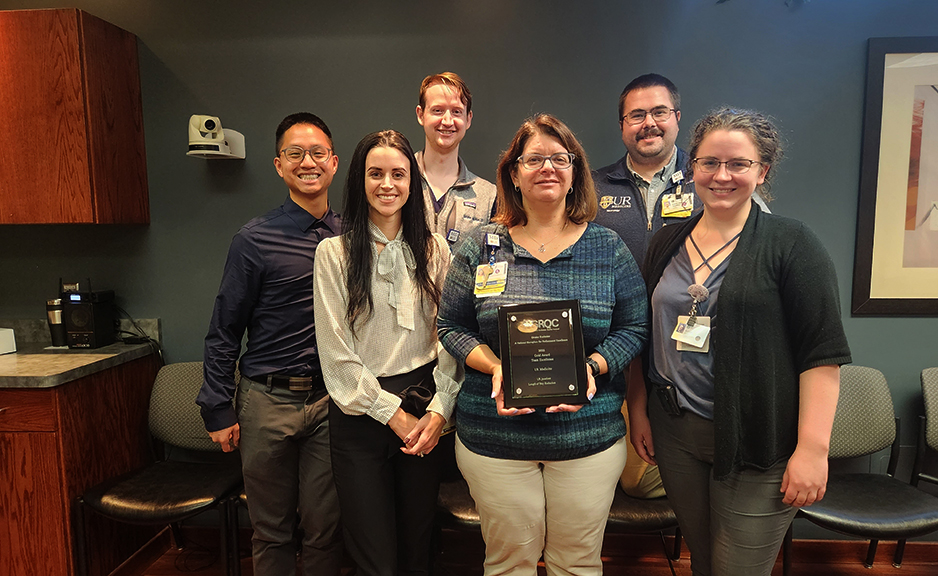 The URMC inpatient Neurology and Imaging Science departments were recently honored with the Gold Award for Team Excellence by the Greater Rochester Quality Council for a project which saved over 150 admissions from the ED and reduced inpatient length of stay. The GRQC, an affiliate of the Greater Rochester Chamber of Commerce, recognizes teams from a wide range of industries that are committed to quality and performance excellence.
The URMC inpatient Neurology and Imaging Science departments were recently honored with the Gold Award for Team Excellence by the Greater Rochester Quality Council for a project which saved over 150 admissions from the ED and reduced inpatient length of stay. The GRQC, an affiliate of the Greater Rochester Chamber of Commerce, recognizes teams from a wide range of industries that are committed to quality and performance excellence.
This collaboration implemented efforts to reduce a patient’s hospital stay when awaiting an MRI prior to discharge and to prevent unnecessary admissions from the ED beginning in February of 2021 Prior to the launch, data showed that patients who were medically ready for discharge waited an average of two to three additional days in the hospital for an MRI, and many patients were admitted for the sole purpose of an expedited MRI. For improved resource utilization, efforts were made to convert inpatient MRI appointments for patients who could safely be discharged home to urgent outpatient MRI visits.
The project team evaluated inpatient populations that could safely be discharged with their MRI study converted to an outpatient order and developed an alternative workflow whereby the ordering provider could indicate to the MRI team when a patient was considered appropriate for discharge and place a STAT outpatient order for expedited imaging at one of our Ambulatory sites. These efforts have resulted in 532 fewer bed days required for the targeted patient population. This further resulted in our ability to care for 93 incrementally more patients. Tracking shows this project has had a positive financial impact to date of over $465,000. The project is ongoing, and remains extremely successful.
NINDS Delegation Tours Neurology Research and Education Programs in Zambia
Wednesday, January 18, 2023

A team from the National Institutes of Neurological Disorders and Stroke (NINDS) has travelled to Zambia and met with U.S. and Zambian researchers and clinicians who have been building a decades-long partnership to address the neurological burden of diseases like cerebral malaria, HIV, and stroke.
The constellation of research, education, and clinical activities that the NINDS team reviewed during their visit owe their origin to partnerships first formed by University of Rochester Medical Center (URMC) neurologist Gretchen Birbeck, M.D., back in 1994. Birbeck’s research in sub-Saharan Africa, primarily Zambia, aims at identifying risk factors and effective treatments for the neurological problems common in resource-limited tropical settings. She also see patients in Zambia, where she spends five to six months per year, and serves as the director for Chikankata's Epilepsy Care Team in Zambia's rural Southern Province and principal for the Neurology Research Office at the University Teaching Hospital (UTH) in Zambia’s capital, Lusaka.
In partnership with the Zambian Ministry of Health, UTH, the University of Zambia, Johns Hopkins University, Harvard University, Michigan State University, and other institutions, these efforts have grown to include a wide range of complementary neurological research, training, and care programs based in Zambia. The Neurology Research Office established by Birbeck on the main UTH campus serves as hub for many of these efforts, which have received more than $15 million in funding from the National Institutes of Health and other organizations and foundations over the past 29 years.
Read More: NINDS Delegation Tours Neurology Research and Education Programs in Zambia